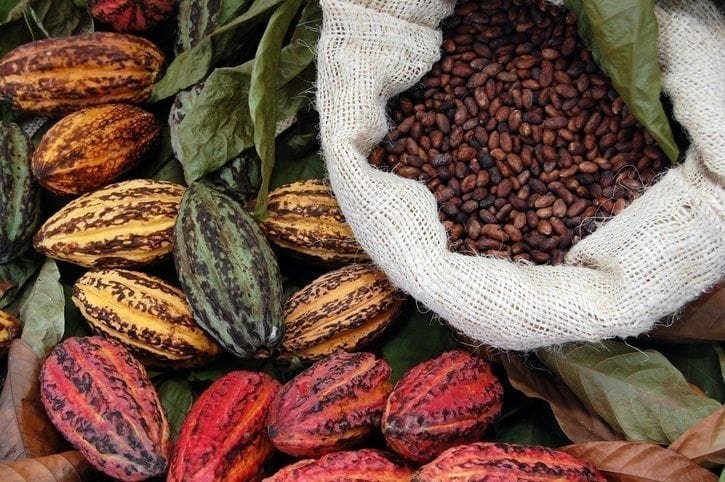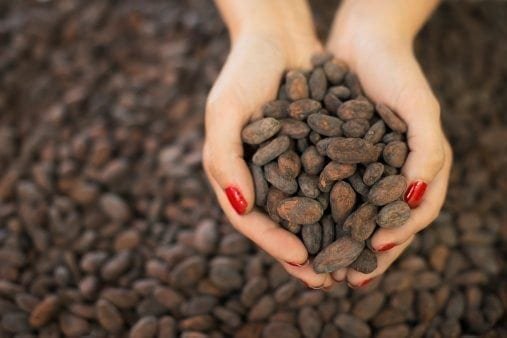Josie Wexler, researcher at Ethical Consumer, is calling for industry-wide action on cocoa sourcing and the endemic poverty that underlies the child labour.
‘Shockingly, child labour in cocoa has increased by 14% in the last decade’, Josie said. ‘Children are often engaged in hazardous use of machetes and toxic chemicals and carry excessive loads.’
Poverty and child labour
Companies with sufficient cocoa sourcing policies in place were given the ‘best’ score for Ethical Consumer’s Cocoa Sourcing rating.
In some cases, brands dealt directly with the farmer, had traceable supply chain measures in place and were able to confirm they were 100% Fairtrade Foundation certified, which gives the farmers a premium over the market price.
‘Governments have started making some efforts to tackle the low prices at the root of the issue, and companies need to be much more on board with that and helping to push it forwards.
‘Fairtrade gives a premium, so the farmers get a bit more money. Other models that help include having the farmers more involved by partially owning the company (Divine) or making the finished chocolate locally can make a big difference but ultimately governments and companies must do more to eliminate poverty among those supplying the industry.
‘Cocoa is produced by millions of dispersed small farmers. The child labour used by nearly all farmers is from their own family and is the result their extreme poverty which in turn is caused by low cocoa prices with only about 6% of the price of a chocolate bar goes to the cocoa farmer.
‘Companies have now been pledging to tackle child labour in the cocoa industry for twenty years and still very little progress has been made. They need to be showing much more appetite to address it, as it still looks like they are largely turning a blind eye.’
JOSIE WEXLER
Researcher at Ethical Consumer
Top of the chocs
Brands with sufficient cocoa sourcing policies were named as: Cocoa Loco, Lindt, Traidcraft, iChoc, Vivani, Ritter Sport, Lidl, Divine, Tony’s Chocolonely, Fairafric, Vego, Beyond Good, Chocolate Madagascar, Pacari, Co-op, Moo Free, Willies, Ombar, Mia.
Overall Best Buys for chocolate were named as Pacari, Beyond Good, Mia, Fairafric, Chocolate Madagascar and Divine.
They were chosen as companies ‘going beyond’ to tackle the poverty at the heart of the problem, including going beyond certification by making the finished product at source, or being partially owned by cocoa farmers themselves
 Play Video about This Rock Might Just Save The World
Play Video about This Rock Might Just Save The World Play Video about Play 2 hours of rock
Play Video about Play 2 hours of rock Play Video about Play 2 hours of brook
Play Video about Play 2 hours of brook Play Video about Play 2 hours of sheep
Play Video about Play 2 hours of sheep















































